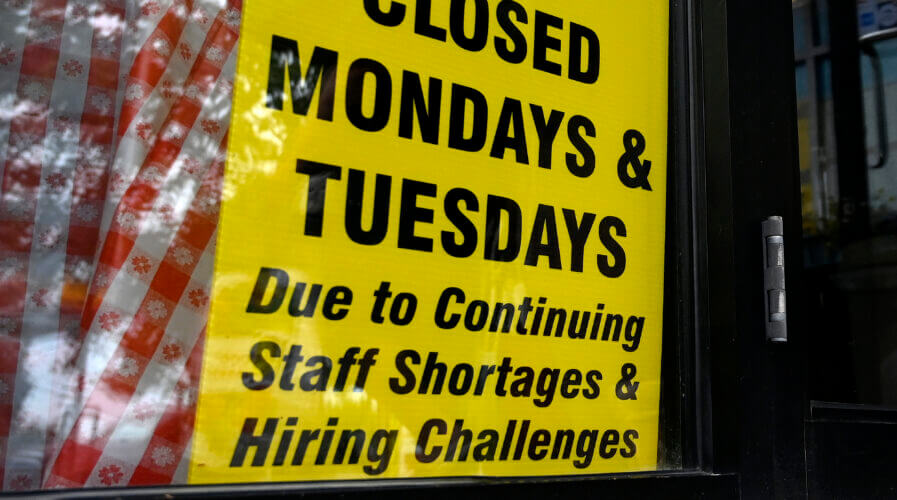
(Photo by OLIVIER DOULIERY / AFP)
What IT teams should do to brace for potential recession?
For IT leaders around the world, dealing with recession is becoming a huge problem, especially with businesses increasing their dependence on digital services. While the straightforward solution would be to outsource IT services to ensure business continuity, there are concerns about how secure such services may be, especially with the increasing number of cyber incidents involving such services.
In fact, reports state that the US economy could be heading into a recession especially after official figures showed the economy shrinking for the second straight quarter. The International Monetary Fund has also stated that the baseline forecast is for growth to slow from 6.1% last year to 3.2% in 2022, 0.4% point lower than in the April 2022 World Economic Outlook.
In the tech sector, reports of continued downsizing by several companies have been making headlines in recent weeks. While the year may have started with fears of great resignation, it is now slowly becoming a year of a great layoff and recession.
So how can IT teams deal with the recession? Do they just work overtime to ensure they are able to keep the business going or do they invest in more automation tools to reduce the reliance on manual labor? Either way, the solution is not something that can be easily solved and needs proper planning to avoid any long-term effects.
To understand more about how IT leaders can deal with the global recession problem, Chris Harris, VP for Global Field Engineering at Couchbase, shares his insights with Tech Wire Asia.
How big a concern is the possible financial fallout related to recession for IT leaders?

Chris Harris, VP for Global Field Engineering at Couchbase
Instead of approaching the economic fallout from a place of concern, IT leaders should view it as an opportunity to innovate and minimize negative impacts by focusing on how technology can bring us out of the downswing.
There is no debate that technology innovation will be a massive part of our future and will continue to play a critical role in everyday life. The last few years have shown us that the demand for fast, flexible, and affordable technology will continue to grow even through financial hardships and market uncertainty.
Can getting ahead of this be beneficial?
Through difficult economic times, leaders must respect and invest in the value that their team delivers to customers every day and the future value they’ll create. Whether it be making strides in healthcare or discovering new methods for cleaner energy production—innovation brings new possibilities and ultimately a healthier, more robust economy. Investment for the future, as an example in the cloud and developer-friendly technologies that bring forth reliable, fast and flexible innovation for whatever the future holds.
What advice can you offer for doing so (any things you’ve done recently or in the past/results, prime areas for cutting, tips on approach, mistakes to avoid)?
Leading with the motto of, “making tomorrow better than today, start now!” and actively investing in the growth of the next generation of talent will help accelerate your company’s journey into the future.
IT leaders should also invest in cutting-edge technology like cloud, automation, machine learning, edge computing, and developer agility tools, that will allow organizations and their customers to devote resources to the future instead of focusing on the past. During times of disruption, doing the same thing will leave you in the same position. By choosing to invest through the turbulence, when the economy returns to a state of growth—which it will—businesses can come out stronger to embrace the even bigger role that the cloud will play in the future.
READ MORE
- The criticality of endpoint management in cybersecurity and operations
- Ethical AI: The renewed importance of safeguarding data and customer privacy in Generative AI applications
- How Japan balances AI-driven opportunities with cybersecurity needs
- Deploying SASE: Benchmarking your approach
- Insurance everywhere all at once: the digital transformation of the APAC insurance industry


